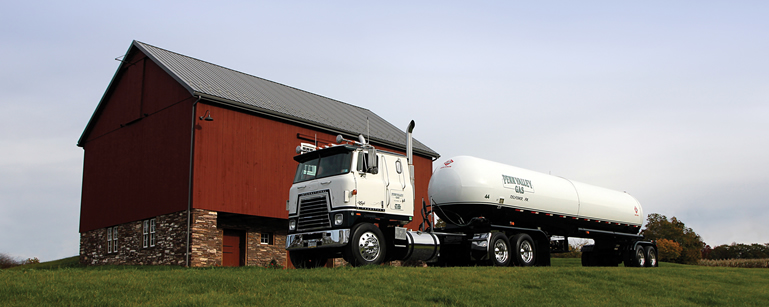Home >
About Propane Supply
About Propane Supply
Major influences on propane prices
- Crude Oil and Natural Gas Prices: Because propane is produced from both crude oil and natural gas, its price generally shadows the prices of those energy sources.
- The Nature of Supply and Demand: While propane is produced year-round, residential demand for propane is highly seasonal. This seasonality causes inventories to increase when demand is low (summer) and decrease when demand is greater (winter). This can often cause prices to rise in the cold of winter when demand increases.
- Seasonal Conditions and Inventory: Colder temperatures during the winter months increase the demand for propane, particularly for home heating, thereby reducing national and regional inventory levels which can in turn lead to higher prices. Conversely, above average quantities in inventory can weaken prices.
- International Energy and Economic Influences: The global marketplace has far reaching impact through invention, production and sales. Developing nations are consuming more energy as scientists search for new energy sources. New customers all over the world are turning to propane as a home energy source, particularly in growing Asian markets like China. These are just some of the aspects that move energy prices up and down on a daily basis.
What are we doing to help?
One of the unique advantages of Penn Valley is the fleet of transports that we own and operate, which provide an essential level of flexibility in meeting seasonal demands. Plus, we diversify our supply and ensure that we have the employees and equipment needed to meet all of your energy needs. You can count on us for excellent service and reliable deliveries at a fair price!
What can you do?
While nobody can control the worldwide factors impacting energy prices, you can take some simple steps to lower your energy bills year-round.
Home Heating:
- Enroll in our Equal Payment Plan to spread your annual costs over 10 months and enjoy the convenience of making equal payments over the winter when your usage is at its highest.
- Inspect and tune-up your residential heating system regularly. A properly working heating system is more efficient and will save you money.
- Change your furnace filter monthly. Clean filters will increase efficiency.
- Invest in a programmable thermostat that lowers your home’s temperature when you are not at home. You can cut annual heating bills by as much as 10 percent per year by turning your thermostat back 10-15 percent for eight hours every day.
- Protect against drafts by caulking and weather-stripping around windows, doors and other openings such as ducts, fans and vents.
- Close vents and doors in unused rooms. Make sure your attic and basement are properly insulated.
Water Heaters:
- Decrease your water heating bill by turning down your water heater from the standard 120 degrees to 115 degrees.
- Install flow-restricting showerheads. You can reduce hot water usage by up to 50 percent without affecting shower pressure.
- Run washing machines and clothes dryers with a full load.
